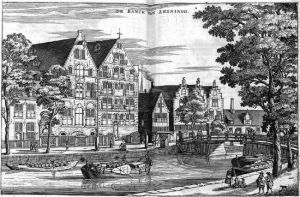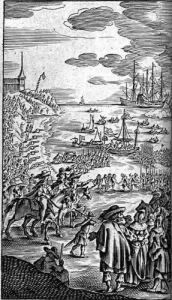Filips Von Zesen Paintings
Filips von Zesen was not primarily known as a visual artist but as a German writer and linguist of the Baroque period. Born on October 8, 1619, in Priorau near Dessau, Germany, he spent much of his life engaged in the promotion of the German language and the purification of it from foreign influences.
Von Zesen was deeply involved in the linguistic and literary movements of his time. He was a member of the Fruitbearing Society (Fruchtbringende Gesellschaft), a German literary society founded in 1617 for the cultivation of the German language. In pursuit of this goal, Von Zesen proposed numerous German equivalents for foreign words that had been borrowed into the language. His commitment to linguistic purity was part of a broader nationalist sentiment that was common among scholars during the Thirty Years' War and afterwards.
His literary works include both prose and poetry. He is known for his novels, which are among the earliest examples of the German novel, and his poems, which were innovative in their use of language. 'Adriatische Rosemund' (1645), a prose work, is considered his most important novel. It is a pastoral romance that showcases his linguistic creativity and his efforts to expand the expressive capabilities of the German language. Von Zesen also published numerous poems, hymns, and translations, and he authored a comprehensive German spelling guide, 'Hochdeutscher Helikon' (1640), which aimed to standardize the spelling of the German language.
Von Zesen's dedication to the German language and literature earned him a place in the annals of German literary history. Although his efforts to reform the language did not all take hold, his influence on the development of German literary prose is notable. He died on November 13, 1689, leaving behind a legacy as a significant figure in the Baroque literary tradition of Germany. His work continues to be studied by scholars interested in the history of the German language and the literary culture of the seventeenth century.

